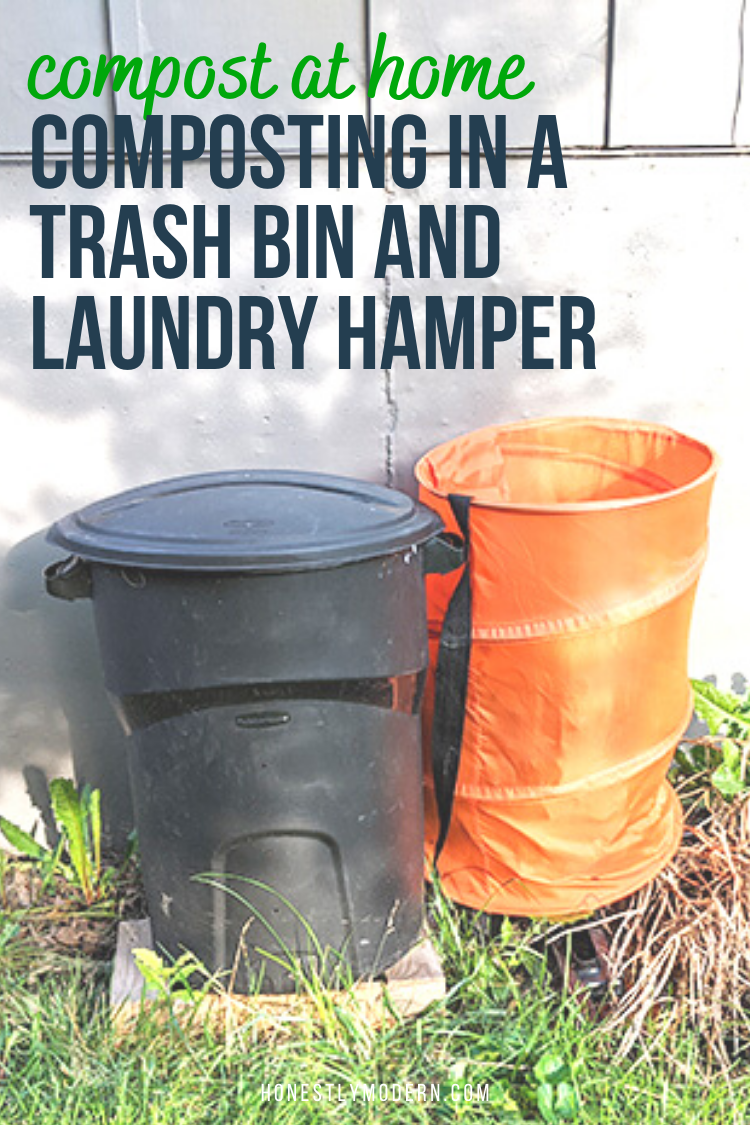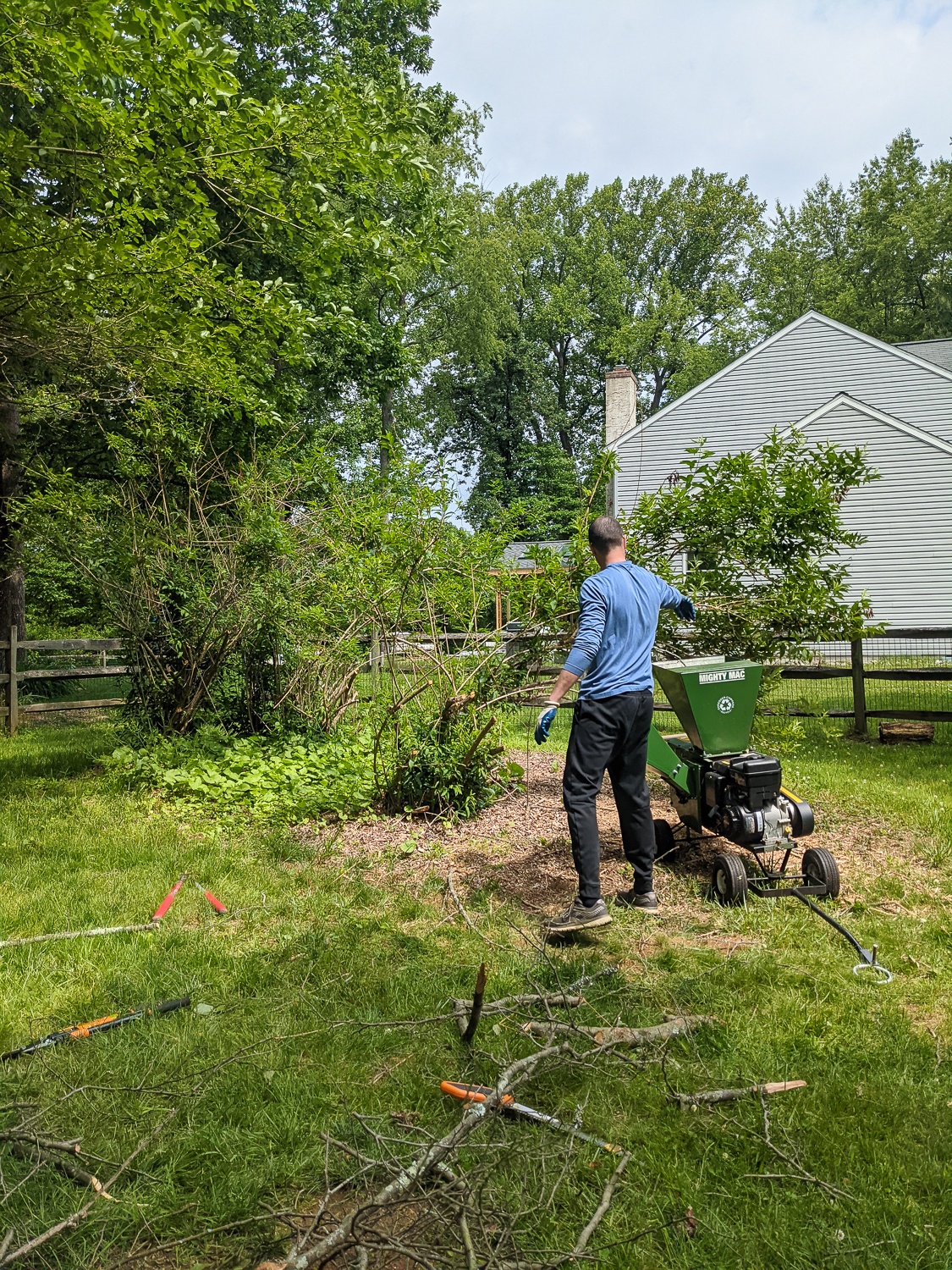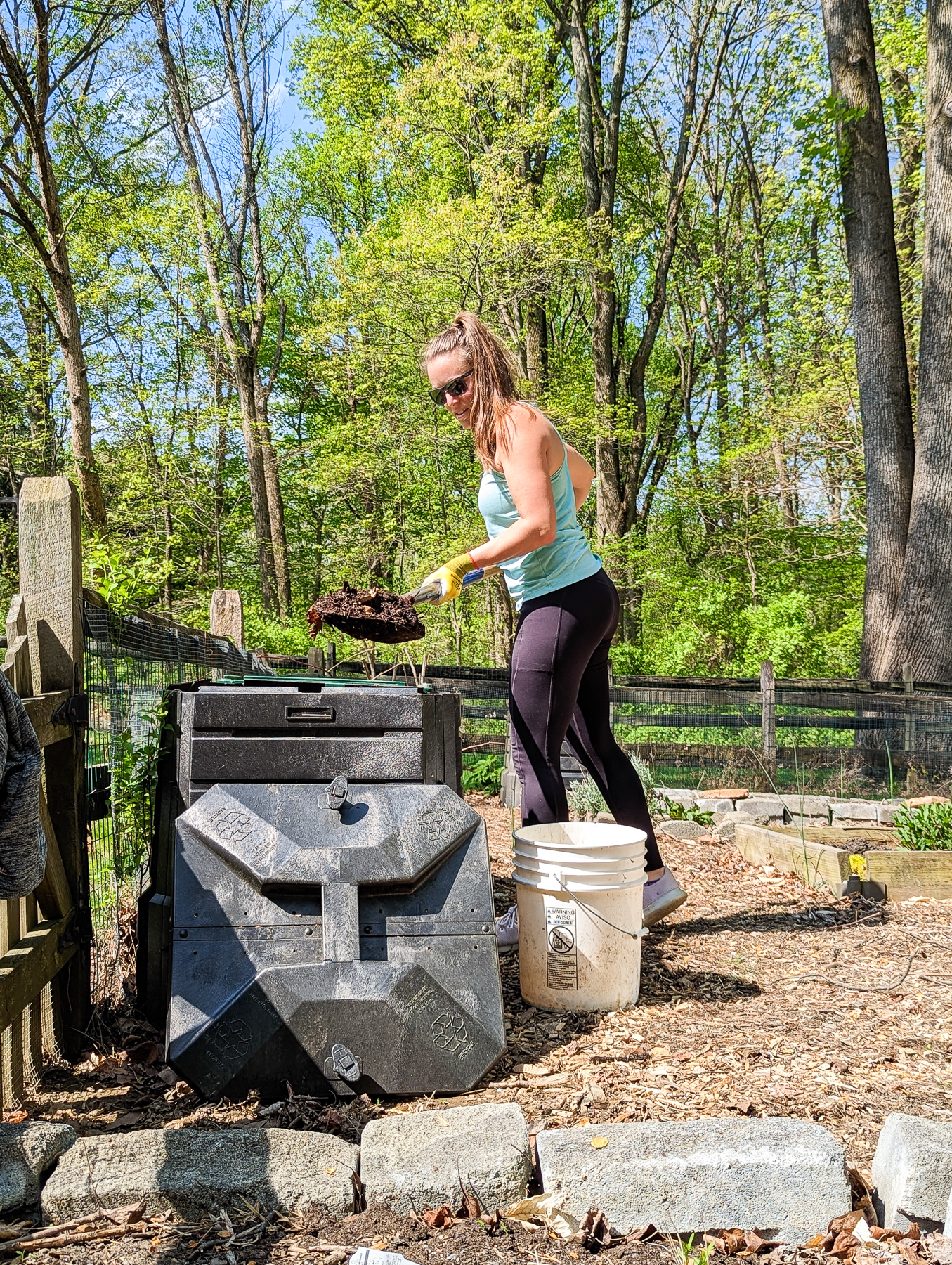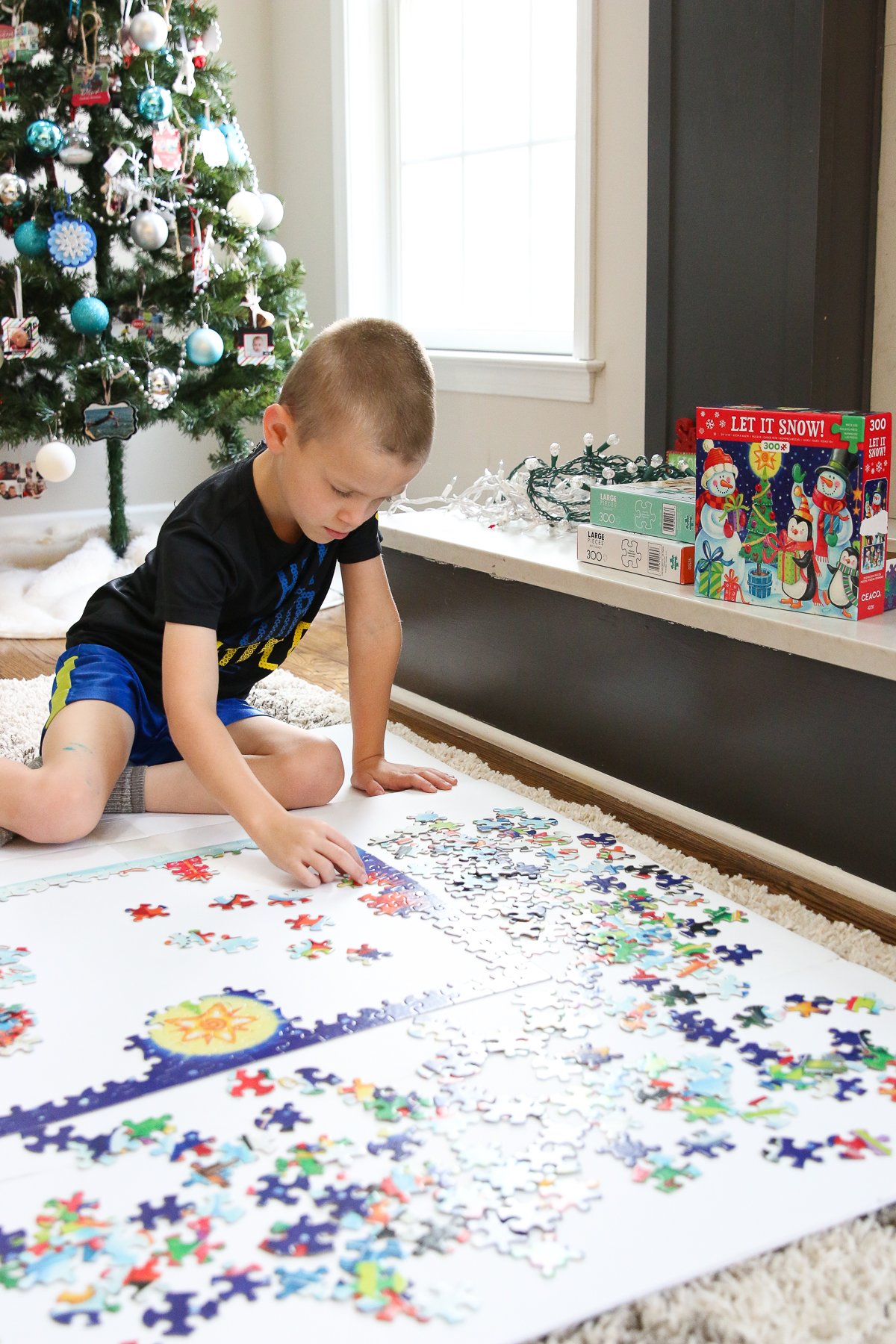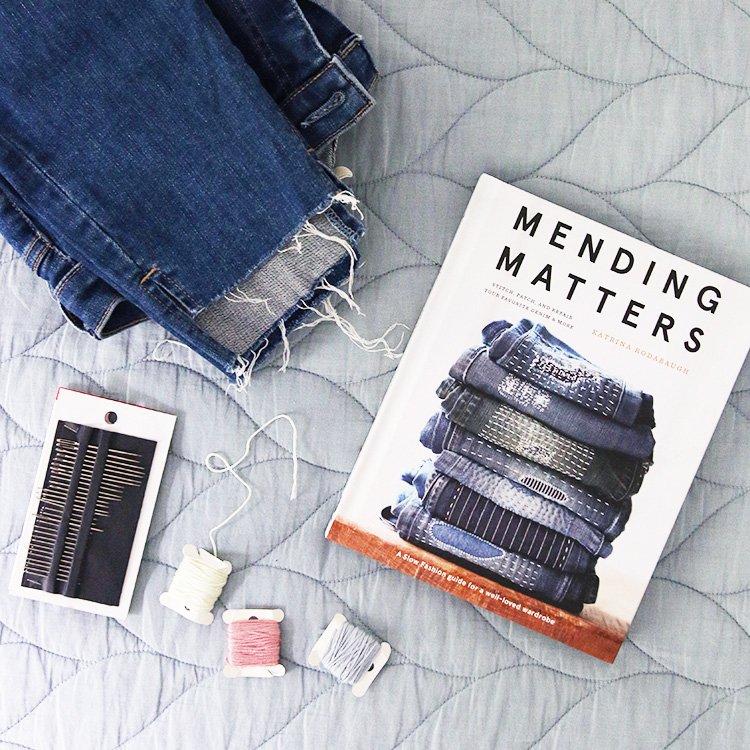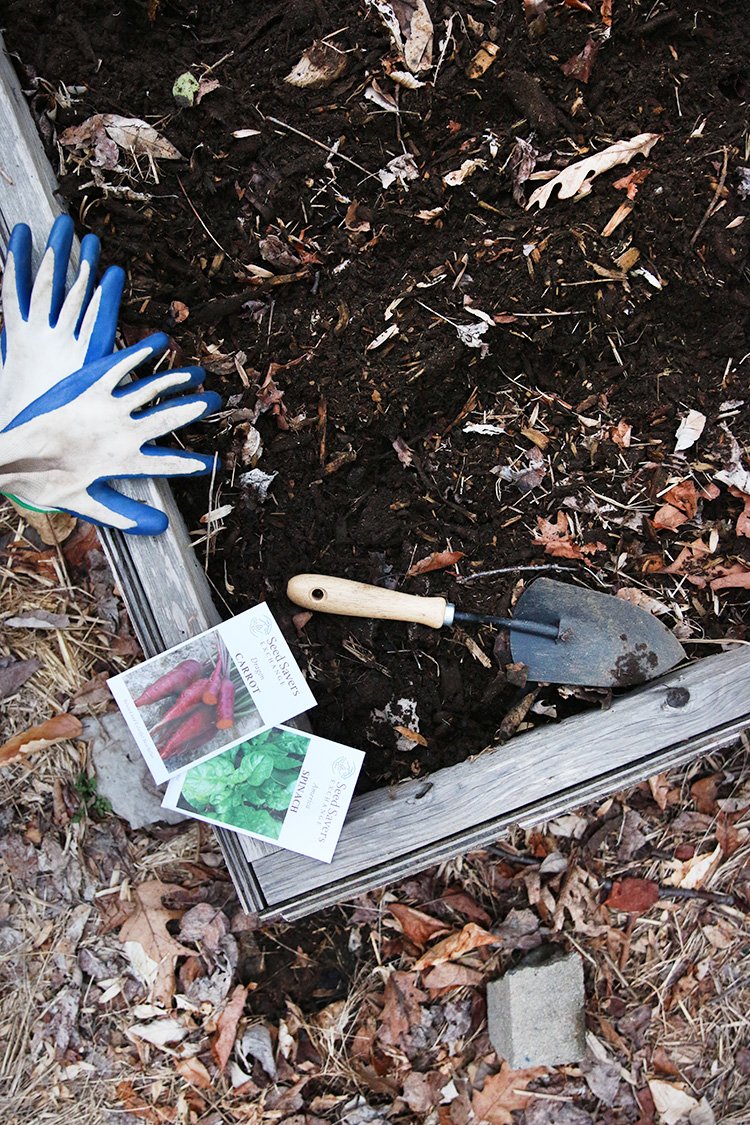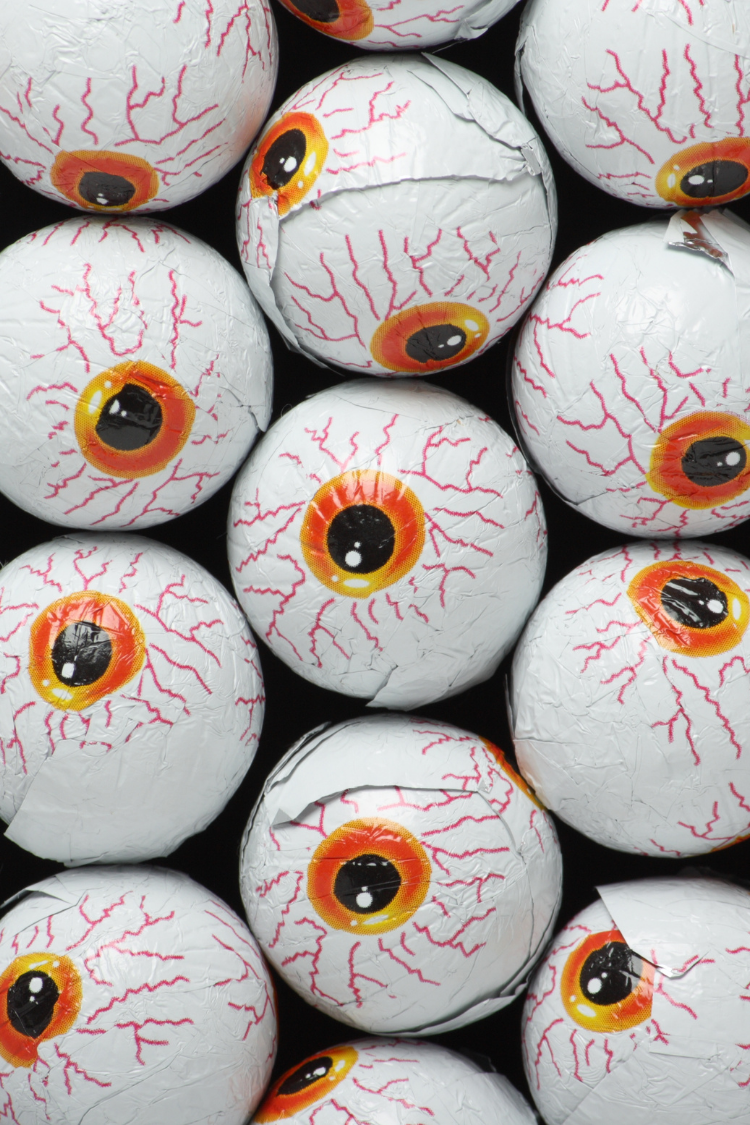How To Compost At Home | Compost In A Trash Bin & Laundry Hamper
Do you know how to compost at home? Depending on where you live, there are probably certain ways to compost at home that work better than others. This gardener decided to compost when she realized her food scraps were attracting insects in her trash, so she ought to start a simple compost bin to use that decomposition to her advantage in her garden. Check out her story about simple composting in a backyard trash bucket and laundry hamper.
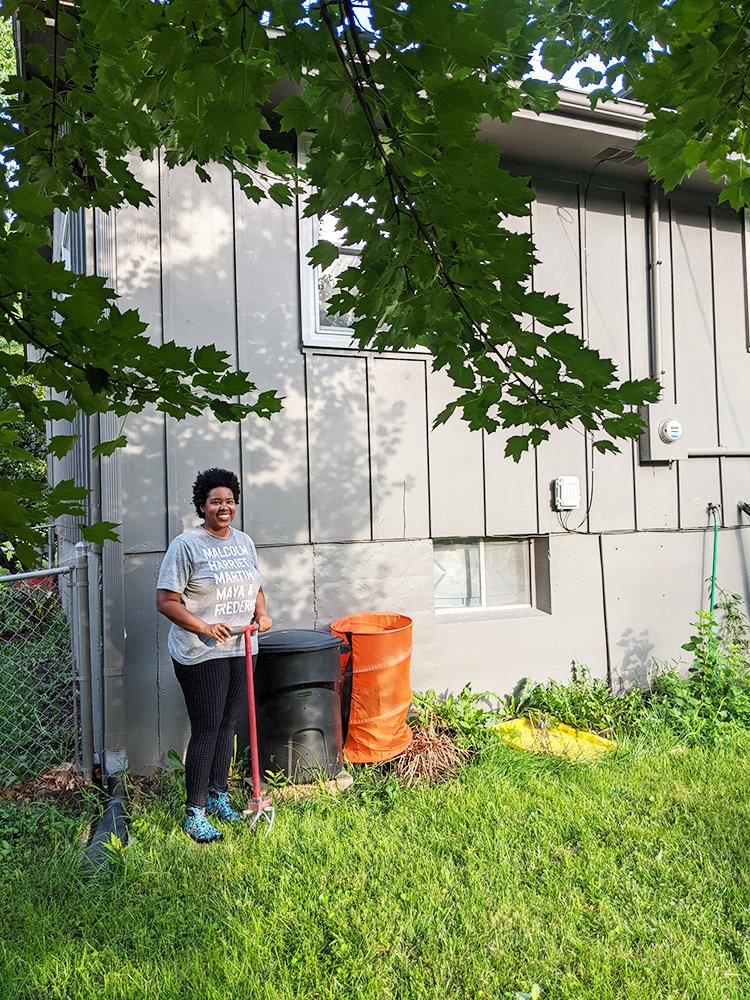
The Compost Chronicles series highlights families in various circumstances who have all found a way to compost at home that works for their lifestyle. Hopefully, you can be inspired to give it a go and help our planet become a little healthier.
Did you know that composting can transform your trash into new life? And that new life, in the form of microbes, fungi, earthworms, and more, provides the foundation for much of all other healthy life on Earth?
Composting is a great way to create healthy soil to support people and our planet. Healthy soil is also a magical carbon sink that absorbs carbon from our atmosphere and helps cool the planet. While dead dirt has few living organisms, a teaspoon of healthy soil has more living organisms in it than the entire population of humans on Planet Earth!
We need everyone to learn how to compost at home and make it a part of everyday life.
Don’t think you can compost? We’ve got a whole set of resources on Everything To Know About How To Compost At Home, including more Compost Chronicles interviews. All of this information about how to compost at home will hopefully prove that just about anyone can make space and find a system to turn their food scraps into nutrient-rich compost to enrich our soil, feed our food cycle, and limit the food waste that ends up in landfills.
In this edition of Bring Your Trash To Life, we are hearing from Jessica. She started composting in a simple trash bin in her backyard when she realized her food scraps were attracting insects in her trash. With a garden, she knew she could take advantage of those food scraps and put the beneficial insect attraction to good use through composting.
I love that Jessica’s composting system is so straightforward and a perfect example that you can get started composting at home today. I’ll let Jessica tell you more about how she and her family turn their food scraps into food for their vegetable gardens!
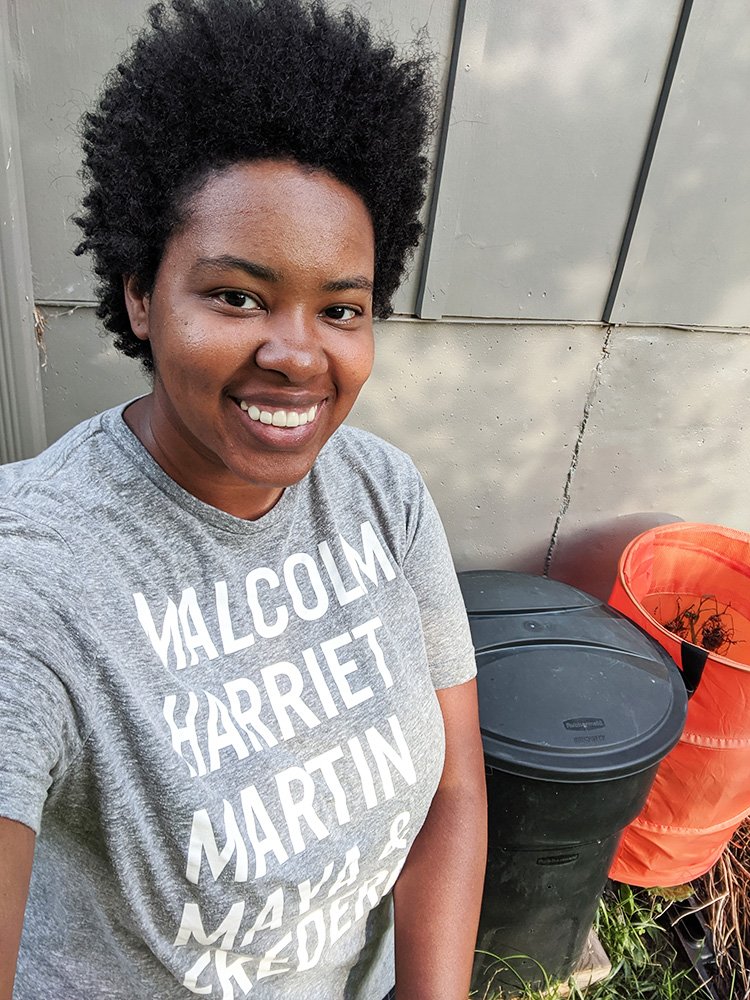
Can you tell us a bit about yourself, where you live, your family, etc…?
I live in Kansas City, Missouri with my husband, Blaine; our 2-year-old son, Will; and our 10-year-old Boston Terrier, Boomer.
Note from Jen: She’s also a rockin’ high school English teacher with a great Instagram account about teacher style and teaching youngsters all the wonders of good books!
Tell us a little bit about why you decided to start composting?
I decided to start composting because my husband loves cooking from scratch, and we always have leftover vegetable peels, eggshells, etc. I also garden, so I have a use for the compost.
Last year, I noticed that when I threw out any bad harvests, insects would break them down very quickly, and I thought ‘I should contain that and use it to my advantage while also reducing my waste‘.
What method or methods of composting do you use or have you used?
I use an old 60-gallon trash can for my compost bin. I drilled 7 holes in the bottom and 12 holes along the sides, using the biggest drill bit we have. I placed the trash can on a wooden pallet so that it wouldn’t be directly on the ground so that it would properly drain.
I started by adding a base of leaves that I raked in the spring. Then I added grass clippings. I started adding leftover scraps from our kitchen–things like carrot and banana peels, eggshells, coffee grounds, etc.
One mistake I made was putting citrus in the compost bin. My husband uses a lot of lemons when cooking and a lot of limes when making drinks. I put those peels in the bin without doing much research. When I noticed an odd smell coming from the bin, I did more research and learned that one lemon peel needs to be balanced out with a whole yard’s worth of leaves or grass clippings, so I just didn’t have a good balance.
For weeds or old plants that I pull from my garden, I leave them on a plastic storage lid to make sure they die, because I don’t want any plants growing in the compost bin. Most plants will die in the high heat of the bin, but a lot of weeds are able to withstand the temperatures, so I let them die first.
I’ve learned it’s important to have balance in the compost bin, so if I have things that aren’t ready to go into the bin, I leave them in a hamper next to the bin until it’s ready.
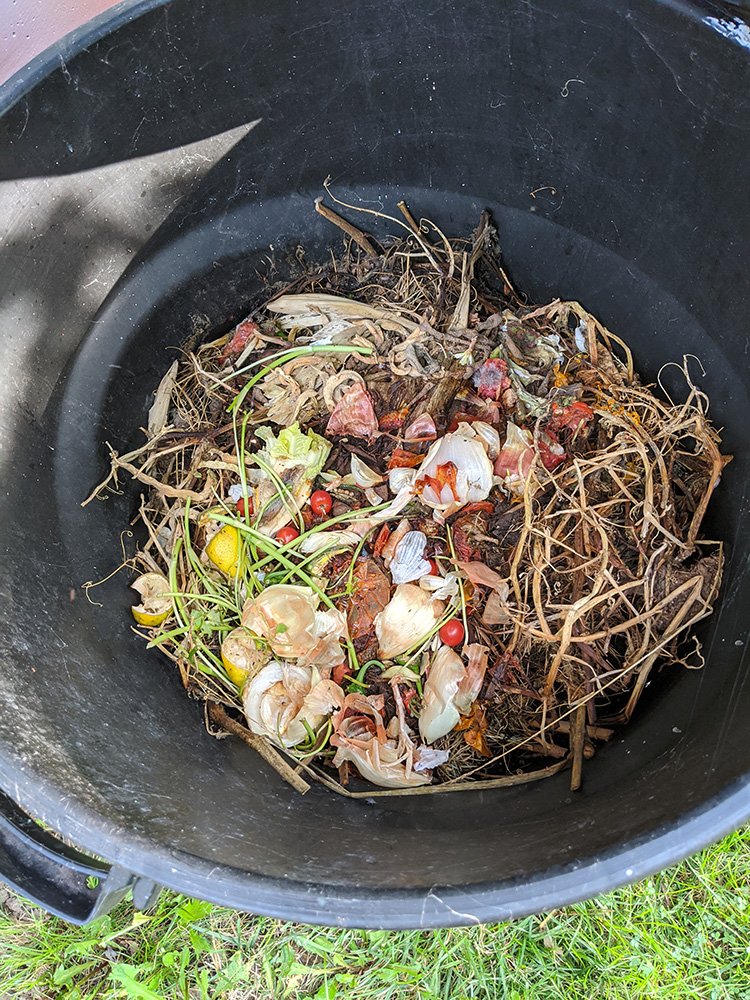
How do you store the scraps until they are taken to your compost pile?
For kitchen scraps, we leave them in a plastic storage container that I usually take out to the backyard to dump in the big compost bin before going to bed at night. There is usually something to dump every day, because we almost always have eggs and coffee and some vegetable or fruit that needs to be peeled.
Have you had any issues with animals or pests getting into your compost pile?
Because I have a lid that secures to the trash can, I haven’t had issues with any animals getting into it. I have had a lot of insects, but I did some research to make sure I properly control the insects and attract the right ones.
I make sure to add grass clippings on top of the food scraps every time we mow the lawn. There aren’t any leaves to add in the summer, but I will be adding a lot of leaves when they start falling in autumn. Also, at the end of my gardening season, I will add some of the soil from the raised bed. Balancing out the browns and greens helps to make sure I get the right insects to break down the materials.
Do you have any special tools that make composting easier?
I use a manual garden claw to occasionally turn the compost.
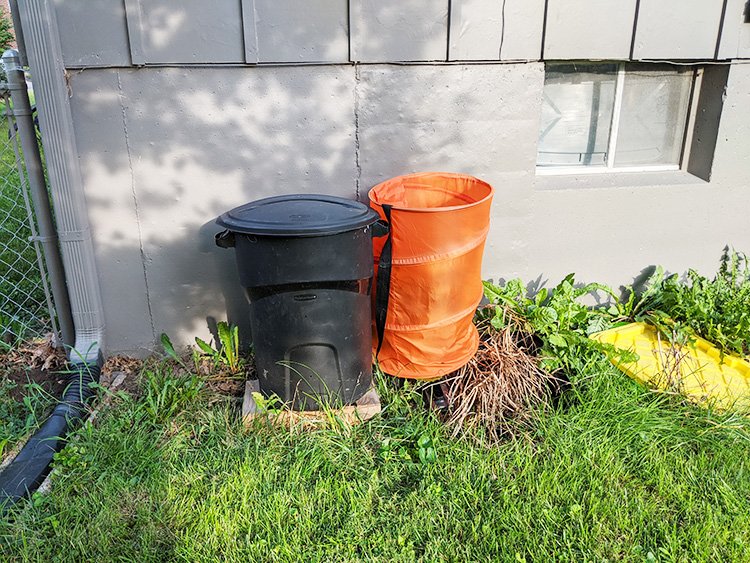
Have you experienced any benefits from composting?
I like that I have compost on hand any time I need to amend the soil in my garden, and I like that we’re reducing waste from our home.
Anything else you’d like to share with readers about your composting practices, especially to help beginners gain confidence that they too can compost?
Like anything gardening related, I think composting should be a healthy balance of doing your own research, asking others about their experiences, and some trial-and-error. If something doesn’t work, just try again in a different way.
Where else can we find you and learn more about what you’re up to?
You can follow my gardening endeavors at on Instagram @gardenbygrider.

